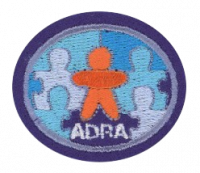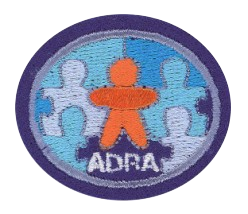Difference between revisions of "AY Honors/Community Assessment/Answer Key/fr"
(Created page with "</noinclude> <!-- 1. Sélectionne un village ou un quartier qui t’est familier et donne autant qu’il t’est possible les informations suivantes: la situation sur la carte...") |
(Created page with "{{clear}}") |
||
| Line 7: | Line 7: | ||
<!-- 1. Sélectionne un village ou un quartier qui t’est familier et donne autant qu’il t’est possible les informations suivantes: la situation sur la carte; les conditions économiques; la description démographique des habitants (l’âge, le genre, les emplois les plus fréquents, etc.); les accès aux soins de santé; le taux de criminalité; les établissements scolaires. --> | <!-- 1. Sélectionne un village ou un quartier qui t’est familier et donne autant qu’il t’est possible les informations suivantes: la situation sur la carte; les conditions économiques; la description démographique des habitants (l’âge, le genre, les emplois les plus fréquents, etc.); les accès aux soins de santé; le taux de criminalité; les établissements scolaires. --> | ||
| − | + | {{clear}} | |
| − | |||
| − | {{ | ||
| − | |||
<div lang="en" dir="ltr" class="mw-content-ltr"> | <div lang="en" dir="ltr" class="mw-content-ltr"> | ||
Revision as of 01:08, 17 August 2022
Niveau d'aptitude
1
An
2005
Version
06.02.2026
Autorité approbatrice
Conférence Générale
| This honor is available only to clubs outside the North American Division. For those inside the North American Division, use the Identifying Community Needs honor instead. |
1
Economic conditions
Economic indicators include employment rates, income levels, occupations, number of businesses vs residences, etc. This information is usually included with any standard demographic report. If it is not, you can get information like this from your municipality, county/parish, or state by contacting the Department of Economic Services and Community Development. They will be able to provide you with income reports and business statistics for their jurisdiction; you may also contact the Department of Revenue for sales tax and other local revenue statistics.
A demographic profile
A demographic profile is a breakdown of the people in the community based on age, sex, race, income levels, employment status, average household size, etc.
Easy and free demographics are available online at city-data.com.
AdventSource and your local city manager's office may also be able to provide you with up to date demographics. AdventSource will refer you to the Center for Metropolitan Ministry at Washington Adventist University, which is the only Adventist organization currently providing demographic reports for local communities. You can reach the staff at 800-438-9600.
Public health statistics
This includes the rates of:
- Birth
- Death
- Divorce
- Marriage
- Fetal death
Try plugging in the name of your state or region plus "public health statistics" into a search engine. You may also try contacting your local or regional health services department by mail, phone or internet to gather these statistics.
Crime Statistics
Start with the local police department who will either have the information or know where to get it.
Education
You are looking for statistics on the percentage of adults who completed high school and university. An area with many university graduates will tend to be more wealthy and have less crime. An economic development office often has this information.
2
All communities need these types of services, but some more than others. Focus on the biggest needs.
3
These people carry with them a great deal of knowledge on local needs and services; they are familiar with local professional and volunteer organizations that operate in your area.
In the book Understanding Your Community by Monte Sahlin there is an entire chapter that explains how to do this. It includes a list of 50 civic leader roles that typically exist in communities in the United States, with specific questions for each of these roles. You can order this book at Center for Creative Ministry or AdventSource.
4
Do not overlook the items that your club and other ministries in your church can address. Reports such as these are important to help focus the efforts of the church to the true needs of the community it serves. Only through careful consideration of those needs can we do our Christian duty of service in a way that is useful and beneficial. Community outreach is not only for the productivity of the church but for the true benefit of those it is to affect. Therefore, not only is it necessary to identify the community's needs, it is also necessary to prioritize them, and to determine the ministry best suited to execute the service.
5
This is where you summarize your research.
References
Studying Your Community by Roland L. Warren, Free Press, New York and London ( 1965)
The Church That Cares: Identifying and Responding to Needs in Your Community by Kenneth R. Miller and Mary E. Wilson, Judson Press, Valley Forge, Penn
Understanding Your Community by Monte Sahlin, Center for Creative Ministry, Lincoln, Nebraska (Third Edition, 2006)



